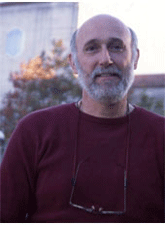James Kastely
Department Chair and Professor of English
- Phone: (713) 743-2952
- Email: jkastely@uh.edu
- Office: 228 Roy Cullen Building
- CV
James Kastely, Chair of the English Department, is a nationally recognized expert in the history and theory of rhetoric. He is the author of The Rhetoric of Plato's Republic: Democracy and the Philosophical Problem of Persuasion (Chicago) and Rethinking the Rhetorical Tradition: From Plato to Postmodernism (Yale). His latest book is Loving the World Appropriately: Persuasion and the Transformation of Subjectivity, forthcoming from University of Chicago Press. He has published in PMLA, College English, The Rhetoric Society Quarterly, Philosophy and Rhetoric, Philosophy and Literature, Style, Mosaic, the Journal of Aesthetics and Art Criticism, Essays in Theatre, Twentieth Century Literature, and Nineteenth- Century Literature. Before coming to UH, he taught for thirteen years at the University of Hawaii at Manoa, where he won the Regents Medal for Excellence in Teaching, that school's highest teaching prize. Chosen as Outstanding Professor by the graduate students of the English Department and winner of the CLASS 2002 Teaching Excellence Award, he offers courses in the history of rhetoric, rhetorical theory, rhetoric and composition, and history of composition.
Education
- Ph.D., University of Chicago
- M.A., University of Chicago
- B.A., University of Michigan
Book Publications
- Kastely, James L. "Loving the World Appropriately: Persuasion and the Transformation of Subjectivity." University of Chicago Press: Chicago, 2022.
- Kastely, James L. "Rhetoric of Plato's Republic: Democracy and the Philosophical Problem of Persuasion." University of Chicago Press: Chicago, 2015.
- Kastely, James L. "Rhethinking the Rhetorical Tradition: From Plato to Postmodernism." Yale University Press: New Haven, 1997.
Research Interests
History and Theory of Rhetoric
Teaching
Courses
- ENGL 7370 History of Rhetoric
- ENGL 7398 Special Topics: Rhetoric and Desire
- ENGL 7398 Special Topics: Plato as Literary Philosopher
